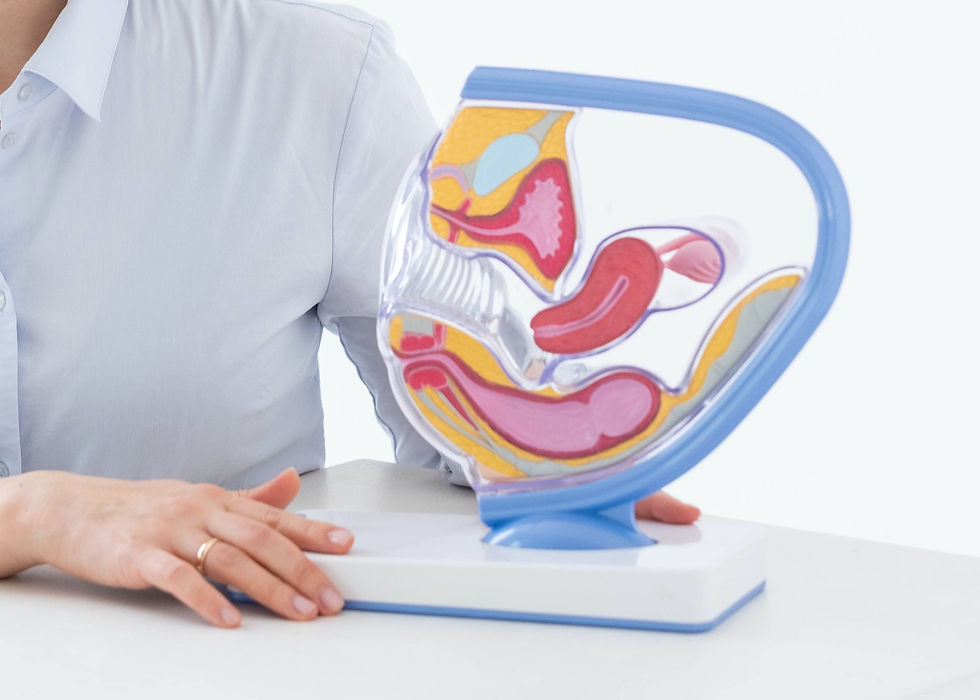Fatigue
- Alan Frischer, MD, MPH

- Jan 11, 2019
- 4 min read
“Doctor, I feel tired all of the time.” I can’t tell you how frequently I hear those words. This complaint raises so many possible underlying issues, including lack of sleep, poor diet, sedentary habits, poor lifestyle choices, stress, and quite a few medical conditions.
What are the consequences? About 100,000 car accidents, 44,000 injuries, and 6,000 fatal crashes each year are likely attributable to fatigued drivers. Other consequences include obesity, hypertension, depression, heart disease, stroke, and poor performance at work and in school.
What are some key causes of fatigue? The first and most obvious is a lack of quality sleep. Which of these recommendations might make a difference for you? Maintain a consistent sleep routine. Get up if you lay awake for more than 10 minutes. Keep your bedroom dark, quiet, and at a comfortable temperature. Limit caffeinated drinks, and avoid tobacco, alcohol, and bright computer screens before bed. Note that sleeping during the day (whether for work or by choice) can disrupt circadian rhythms and lead to fatigue.
Eating a balanced and healthful diet can have an enormous impact on reducing fatigue. Try these strategies: Consume a planned number of calories, and make half of them fruits and vegetables. Add beans and nuts to the diet. Limit sugar and other processed carbohydrates. Eat at least three meals a day, and consume a variety of foods. And yes, breakfast is indeed the most important meal of the day. The body has gone many hours without any food to sustain it. Coffee and a donut are (sorry!) a terrible choice; sugar and salty snacks are usually empty calories with a high glycemic index. Simple carbohydrates lead to a rapid rise in the blood sugar, which is followed by a sugar crash. Have you considered food sensitivities as a possible cause of fatigue? If you suspect that certain foods may be making you tired, such as gluten, dairy, eggs, soy, nuts, or corn, consider working with an allergist or dietician.
Dehydration can be directly linked to fatigue. Dehydration occurs when we don’t drink enough liquid to replace what is lost in urine, stool, sweat, breath and the body’s many biochemical reactions. Even a small fluid loss can reduce blood volume and cause our heart to pump blood less efficiently, which restricts the circulation of oxygen and nutrients to our muscles and vital organs.
Exercise lessens fatigue. While resting may seem like an appropriate response to fatigue, getting up and moving is actually far more effective. Lack of exercise over time will turn muscle into fat, and promote more fatigue.
Excessive anxiety/stress can be physically and emotionally exhausting. Our lives are filled with sources of stress, including work, finances, relationships, moving, and loss. Some stress can be motivating and healthy; making us more alert and better able to perform tasks. However, this is not true for excessive or prolonged stress. Your body may signal that you are experiencing excessive stress with tense shoulders, headaches, poor sleep, or fatigue. Identify and try to eliminate the source of stress. Learn to say no to new commitments. Avoid those who cause your stress. Learn to express your feelings rather than bottling them up, and learn to forgive. Remember that physical activity is not only good for your health, but a great stress reducer.
Depression is a frequent cause of debilitating fatigue, and may well require therapy and medication.
Consider your personal environment. Living in clutter, either at home or at work can be mentally exhausting. The mere sight of disorder can be stressful. Give some consideration as to how you might keep your world better organized on a regular basis.
Many of my patients consume alcohol before bed, thinking that it will help them sleep. Note that while a drink may help to unwind, and even put you to sleep, it interferes with REM sleep, and results in a more wakeful night.
Most of us have become addicted to our electronic devices. Unfortunately, the act of checking our emails, text messages, or social media accounts just before bed can be stressful and stimulating, making it more difficult to relax and fall asleep. In addition, the bright computer screen can fool our brain into thinking that it is daytime, and not time for sleep. Let’s try to keep our electronic devices out of our bedrooms.
A number of medical conditions can cause fatigue. Many of these problems may be treatable, including anemia, thyroid conditions, infections, heart disease, diabetes, uncontrolled hypertension, vitamin and mineral deficiencies, anxiety and depression. One disease that currently has no effective treatment is Chronic Fatigue Syndrome.
There are more than 30 million diagnosed diabetics and many more prediabetics in the United States. Fatigue results from poor regulation of blood sugar levels; high levels make the blood “sludgy,” and affect circulation, which leads to a lack of oxygen and nutrients in the cells.
Those suffering from sleep apnea feel tired no matter how many hours of sleep they get. The condition causes the upper airway to collapse or close, which in turn alerts the brain to wake up and begin breathing again. People with sleep apnea may never enter into deep, restful, healing REM sleep.
There are so many possible causes for feeling tired. Treatment of fatigue requires that we focus on both medical and lifestyle issues. Let’s work on diet, exercise, sleep routines, and other life choices so that we can improve our energy levels and our overall quality of life.


